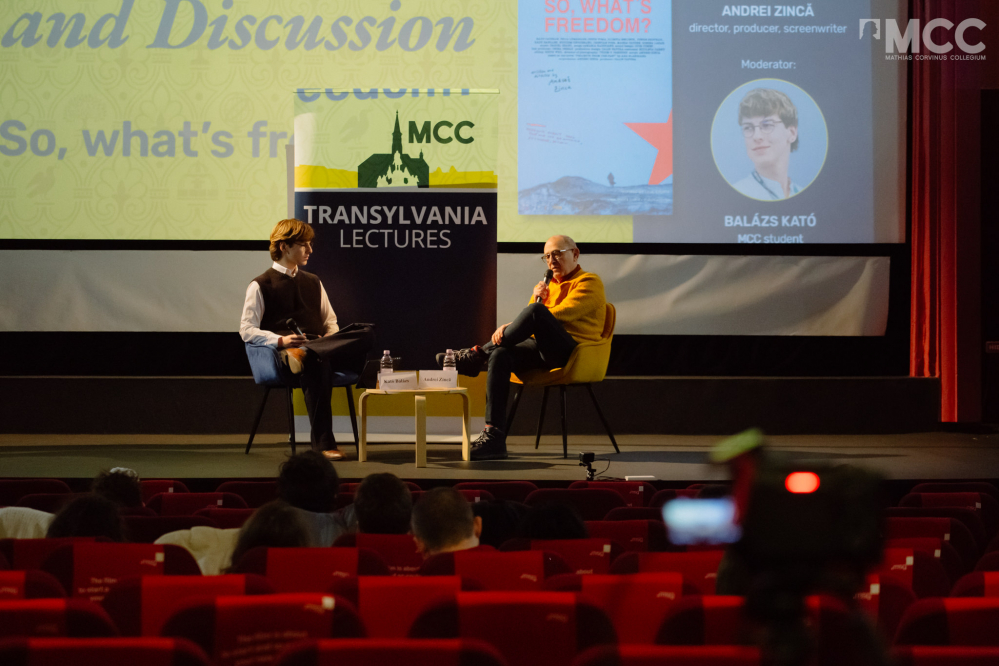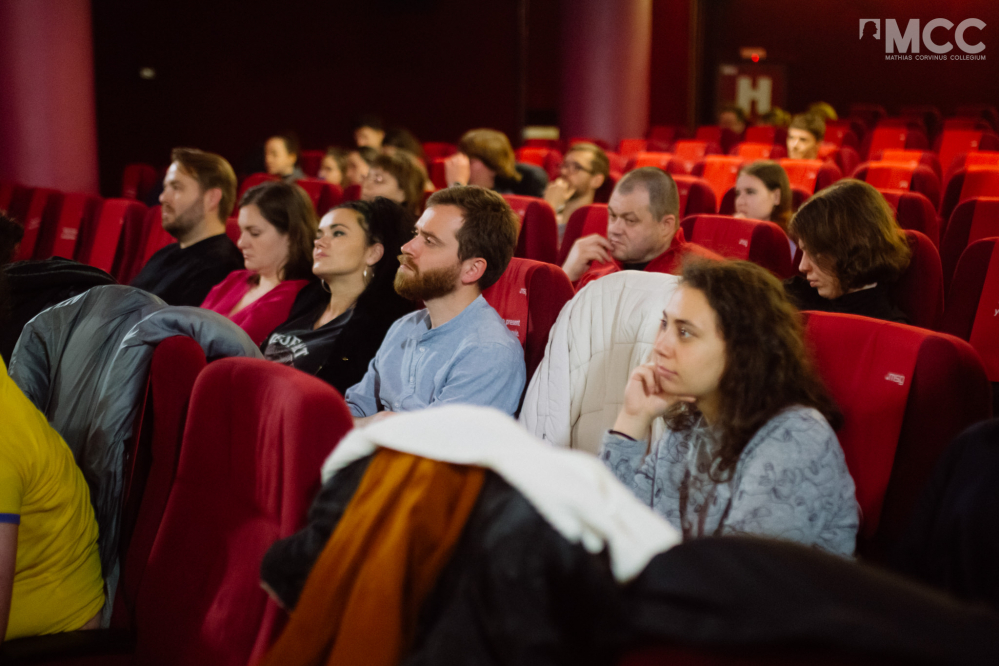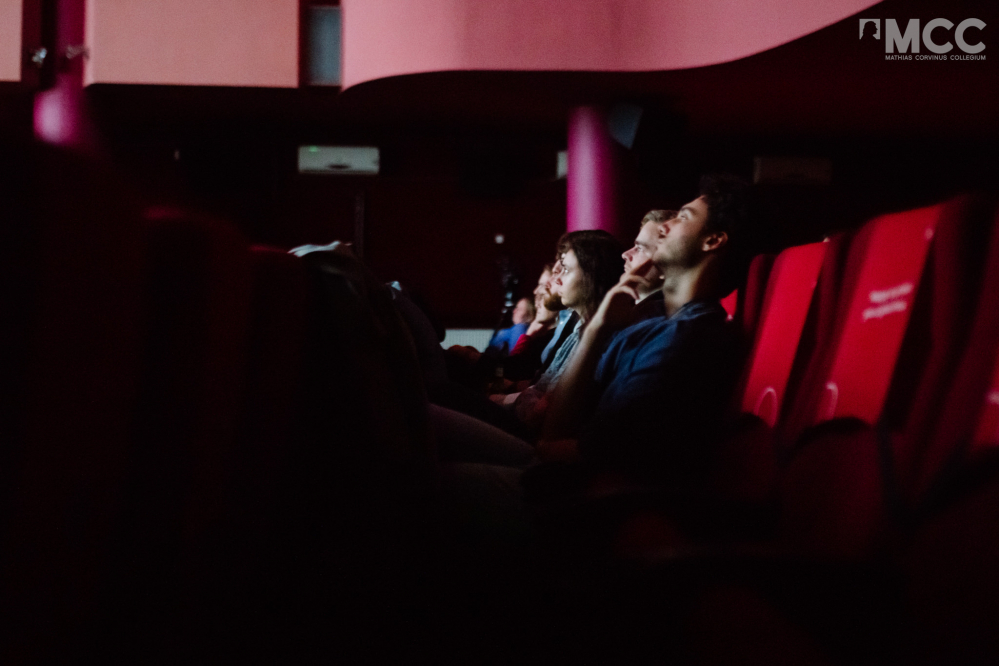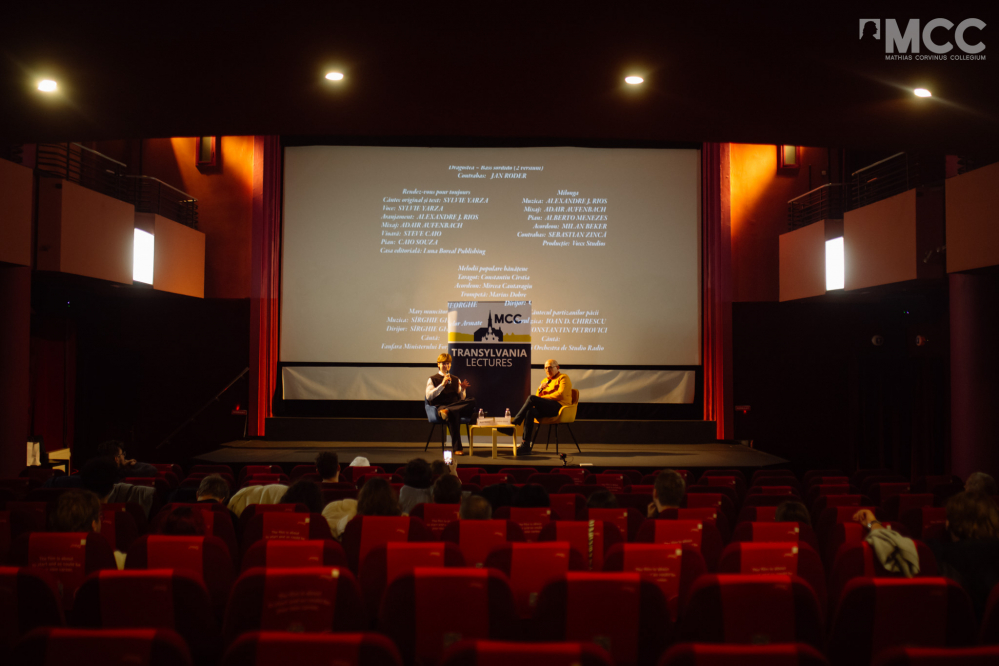Reading time: 4 minutes
On December 10, Mathias Corvinus Collegium (MCC) invited attendees to an intriguing and chilling time-travel experience at the Cinema Victoria in Kolozsvár/Cluj-Napoca. The evening’s centerpiece was Andrei Zincă's film So What’s Freedom?, followed by a thought-provoking discussion with the director about the concept of freedom, its contemporary relevance, and timeless significance.
Organized as part of the Transylvania Lectures series, the event offered the audience a special opportunity to delve deeper into the multifaceted meaning of freedom through an outstanding artistic work and the discourse surrounding it. The event also explored the dark moments, tragic fates, and events of the pre-1989 communist regime in Romania, which may still resonate today, affecting the children, grandchildren, and great-grandchildren of those who lived through them.
During the screening, the audience witnessed a remarkable work of art. The 2020 film, based on Ana Blandiana's novel Past Projects, has received several awards at international events. Inspired by real events, the film portrays the fate of a handful of individuals while also telling the story of 40,000 innocent people deported to the Bărăgan Plain in the 1950s. Among the protagonists are a history teacher hoping for the change promised by the communists, his educated wife who dreams of Paris, a Hungarian and a German, an Orthodox priest and his family, a former soldier, and a resilient Roma man. After deportation, they must rebuild their lives from nothing, slowly discovering that despite losing everything and being left alone in the wilderness, their harsh circumstances bring new meaning to the word “freedom.”
The film’s visuals symbolically reflected the loss and reclaiming of freedom. During the discussion, Zincă explained that the deliberate use of color illustrated how political oppression deprived people of life and hope. The warm, vibrant tones of the initial scenes gradually faded until complete greyness dominated. “This process reflects how joy and free will were drained from people’s lives,” the director emphasized, adding that as the characters gradually adapted to life in their “desolate island,” their world began to regain color.
A philosophical approach to the essence of freedom was another key aspect of the discussion. Zincă stressed that freedom is not merely adapting to circumstances but recognizing what makes us human. He shared an example of a political prisoner who remained internally free during 20 years of imprisonment by writing novels in his imagination. “Freedom is a deeply personal experience that cannot be given by our environment but must be found within,” he said.
The conversation also touched on the tension between societal and individual freedom. According to Zincă, the two concepts can sometimes conflict, and the real challenge lies in achieving individual freedom at the societal level. He drew from personal experiences, sharing how emigrating from Romania to the United States taught him that freedom always comes at a price. “The freedom offered by society always involves compromises,” he noted, adding that this realization inspired him to create the film.
Balázs Kató, a psychology student and member of MCC’s University Program, explored the topic of freedom from the perspective of younger generations. He highlighted that freedom is not self-evident in today’s world and requires conscious effort to preserve. In response, Zincă emphasized the importance of self-awareness and access to diverse information in understanding and living our own freedom.
Questions from the audience enriched the event further. One attendee inquired about the film’s political message and its relevance today. Zincă replied that democratic dialogue and respect are increasingly marginalized, endangering societal freedom. “The future is in the hands of the younger generation; they must create new opportunities,” he said.
The director also shared insights into the filmmaking process, revealing that he completely reworked the script at the start of shooting because he was dissatisfied with the original version. With only two weeks to give the story a new direction, the team shaped the narrative together on set. The actors encountered new scenes each morning, written by Zincă the night before, turning the production into a collaborative workshop. Filming conditions were harsh, especially during winter scenes. The actors experienced the harsh reality of the Bărăgan firsthand, which heightened the film’s authenticity. Zincă continually adapted the script based on these on-site experiences, making the process dynamic and fluid.
By the end of the evening, the audience left not only with an extraordinary cinematic experience but also with the realization that the question of freedom is relevant to every era and every generation, deserving continuous reevaluation. The director emphasized that the story portrayed on screen was not only about revisiting the past but also served as a warning that freedom can be lost and regained, and history has a way of repeating itself.








